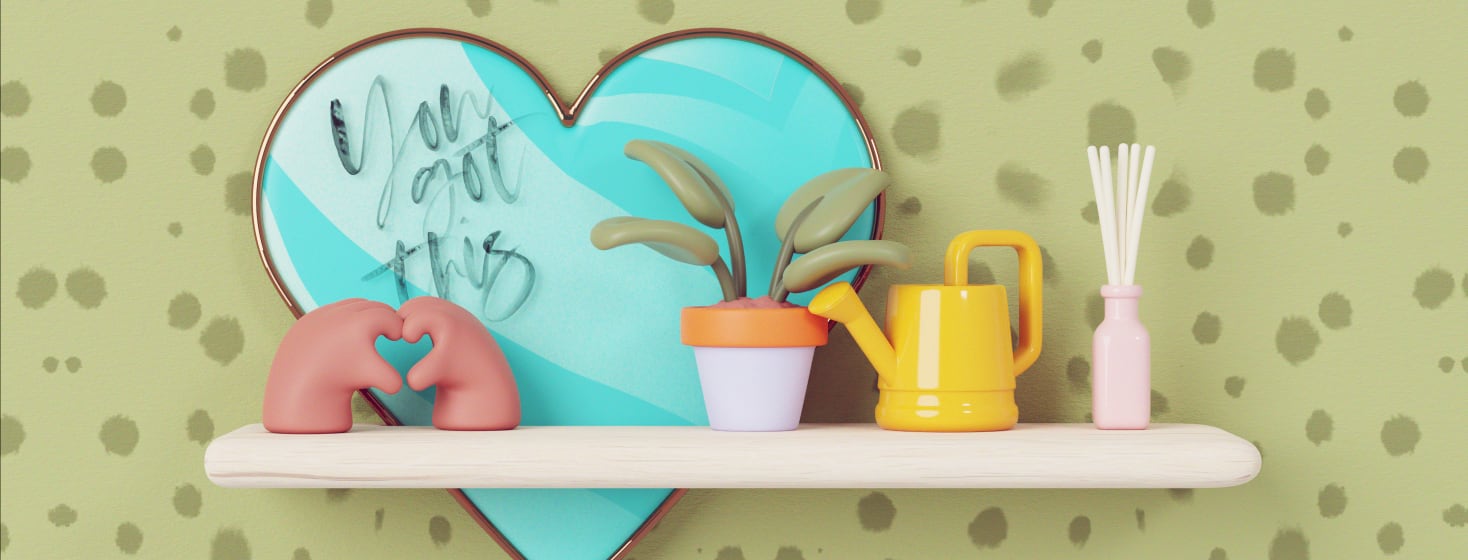Building Self-Esteem While Battling Lupus
Let me tell you a story about a person called low self-esteem. They are kind of a downer, always feeling like they aren’t good enough and doubting their abilities. They’ve been known to show up uninvited to social events and hide in the corner, thinking that no one would want to talk to them anyway. They have even been caught convincing a mirror that it's a problem and not them.
They introduce themselves like this: "Hi, I'm not really sure if I'm worth your time, but here goes nothing. I'm the human equivalent of a discount store knock-off - I may look like the real deal, but deep down, I know I'm just a cheap imitation. But hey, at least I'm honest!"
Has anyone ever met this person? I know at 1 time or 2 or 3, I was the person with low self-esteem. But no worries, I have learned how important it is to kick low self-esteem to the curb and consistently work on myself with a little help. I’ve worked on becoming a more confident and positive version of myself to help me cope better with lupus.
What is self-esteem?
I’m sure many have heard of low self-esteem and may have even had to deal with it. It's definitely a complex condition where your opinion of yourself is so low you think even the spam emails in your inbox have more value than you. I say that jokingly, but I know it to be quite true, especially for me at times. It's like sometimes I would be walking around with a personal rain cloud above my head, except instead of rain, it was a constant stream of negative self-talk. I finally found a way to put up my umbrella to deflect it all.
Self-esteem refers to the overall evaluation or opinion we have of ourselves. It can influence our values and respect for ourselves as individuals. Additionally, self-esteem can influence our thoughts, emotions, and behaviors.
It has been said that self-esteem can be influenced by a range of different factors. Factors include past experiences, social and cultural messages, personality traits, and mental health conditions. Undoubtedly, it can also be developed and improved through various coping strategies such as self-reflection, positive self-talk, and finding support from others.
Why is self-esteem important for lupus warriors?
Lupus can have a significant impact on our physical and emotional well-being. All of the issues physical, emotional, and mental that lupus brings can lead to feelings of frustration, helplessness, and low self-esteem.
Having a healthy sense of self-esteem helps me cope better with the challenges lupus can bring. As I worked on bettering my self-esteem, it gave me a more positive outlook on life. By the same token, it helped me feel more confident on my lupus journey. It instilled resilience in me as I faced issues with lupus. In many ways bettering my self-esteem has helped me maintain a healthy quality of life beyond lupus.
Dangers of low self-esteem
I have found some dangers that come with low self-esteem. Because of the unpredictable nature of lupus, it can be a risk factor for depression and anxiety. But, by building self-esteem, I’ve learned that it can improve my mental and overall well-being and positively impact my physical health. Therefore, I felt it was important to work on building my self-esteem and find support when needed, whether it was from family, friends, or a healthcare professional. I didn’t want to fall to the dangers without trying to do my best to prevent them.
6 tips to improve self-esteem
I had to face that lupus can be challenging, and it's not uncommon for it to affect self-esteem. Here are some tips that I have learned and used to help increase my self-esteem while battling lupus.
- I celebrate my achievements. Focusing on what I could do, rather than what I couldn’t, was key. I celebrated the small victories and achievements and acknowledged any and all the progress I made.
- I practice self-compassion. I began learning to be kind to myself and treat myself with the same compassion and care I would’ve offered to a friend. It became important to acknowledge that living with lupus can be difficult and that it's okay to struggle sometimes.
- I surround myself with supportive people. I spent time with people who supported me and lifted me up. I have found surrounding yourself with positivity can help you feel better about yourself and your situation.
- I focus on my strengths. I got tired of focusing on my weaknesses. As I identified my strengths and what made me unique, I could see my value beyond lupus. Recognizing my talents and accomplishments helped me use them to boost my confidence.
- I take care of myself. Taking care of me became important for both my physical and mental well-being. I worked to make sure I got enough rest, ate a healthy diet, and exercised as much as I was able to. This helped to keep me balanced.
- I seek out professional help. I knew I was struggling with self-esteem and mental health from the issues of lupus. Help from a therapist, who offered support and guidance, helped me cope better with lupus and boosted my self-esteem.
What to remember about self-esteem
In conclusion, self-esteem has been shaped by so many different things. It will take some time to rebuild it to benefit beyond lupus. It's important to remember better self-esteem takes time to build, and it's a journey.
The struggles of lupus can take a toll on anyone, so it’s important to be patient with yourself, focus on your strengths, and practice grace and self-compassion. By taking care of yourself and surrounding yourself with more positive than negative, you can increase your self-esteem and feel a little better about yourself and your situation.

Join the conversation